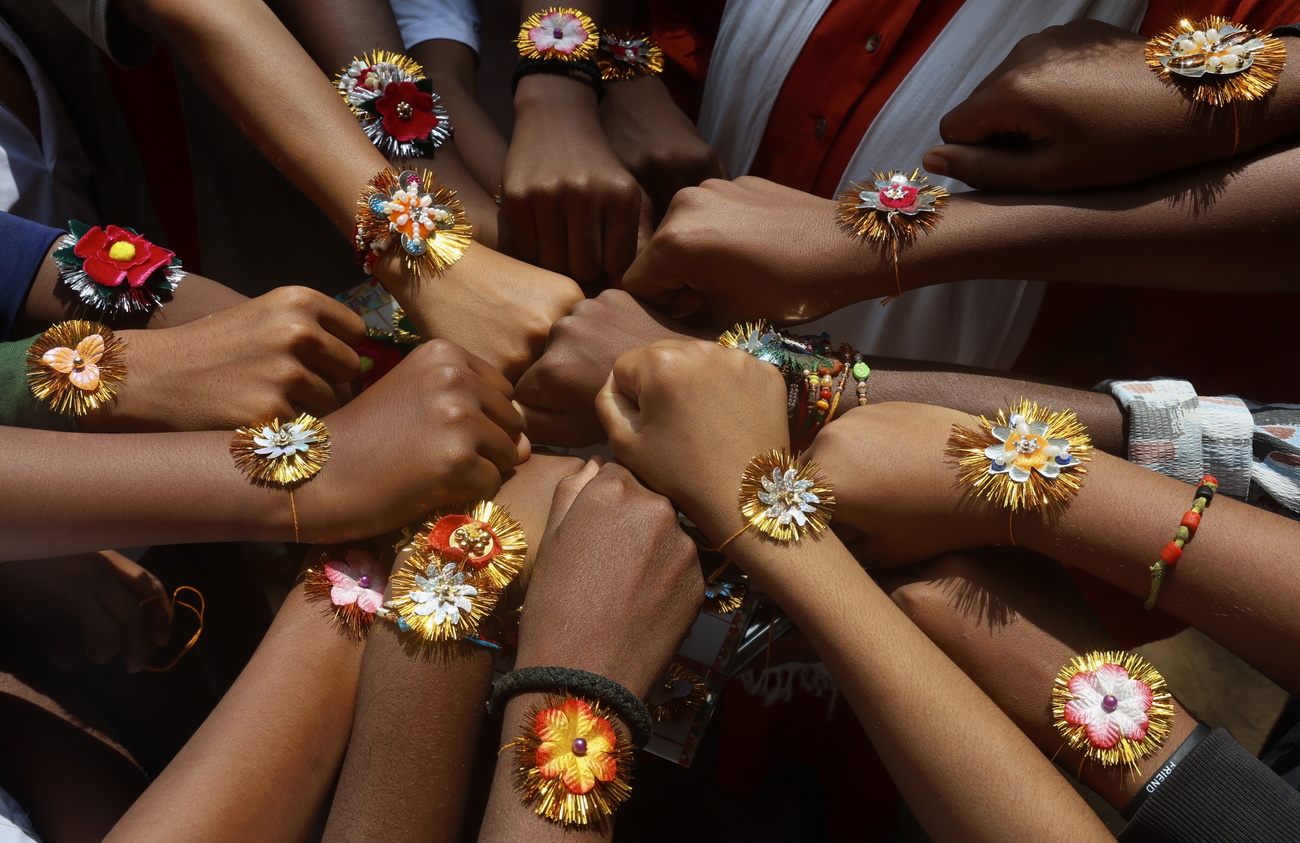
Study highlights Swiss cantons’ failings over adoptions from India

A Swiss study released on Friday has revealed that cantons Thurgau and Zurich are responsible for shortcomings linked to adoptions of children from India.
+ Get the most important news from Switzerland in your inbox
This is the conclusion of a study on adoption practices from 1973 to 2002, published on Friday.
Children from India were systematically adopted without the consent of their parents, Rita Kesselring, head of the research project, told Swiss public radio, SRF.
“Our investigation has identified legal violations. We came across 48 adoptions in the two cantons where the legally required waiver from the biological parents was not available,” she said.
Indian courts nevertheless officially released the children for adoption. In most cases, the cantonal authorities approved the adoptions without question.
+ The Swiss illegally adopted thousands of children from abroad
The results of this study are not surprising, says Sarah Ineichen, president of the association “Back to the roots”, which advocates for the interests of adopted people from Sri Lanka and other countries.
+ Swiss authorities address failures in international adoptions
The report confirms what has long been known, she says. “The adoption procedures were illegal. As a result, adoptees are still unable to claim their right to know their origins,” she notes.
Over 2,000 adoptions from India
The study “Mother Unknown – Adoptions from India in cantons of Zurich and Thurgau, 1973 – 2002” examined adoptions from India because they made up the largest proportion of adoptions from abroad for the period in question. During this period, 2,278 children were adopted from India – 256 of in canton Zurich, 30 in Thurgau.
As the cantons state, the results of the study are consistent with the results of other studies. Other studies, for example from canton St Gallen or at the national level, showed that in the late 20th century both cantonal and federal authorities often did not fulfil their supervisory duties or did so inadequately.
Not the first report on misconduct by authorities
At the end of 2023, a report by the Zurich University of Applied Sciences (ZHAW) showed that illegal practices are believed to have occurred in several thousand cases between 1970 and 2000. In this study, the adoptions included children from India, Bangladesh, Brazil, Chile, Guatemala, Colombia, Korea, Lebanon, Peru and Romania.
As early as 2022, an investigation in canton St Gallen caused controversy because the extent of the authorities’ serious misconduct. Between 1973 and 2002, 85 children from Sri Lanka were adopted in St Gallen. Not a single one of the adoption procedures was completely legal.
Translated from German by DeepL/sb
This news story has been written and carefully fact-checked by an external editorial team. At SWI swissinfo.ch we select the most relevant news for an international audience and use automatic translation tools such as DeepL to translate it into English. Providing you with automatically translated news gives us the time to write more in-depth articles.
If you want to know more about how we work, have a look here, if you want to learn more about how we use technology, click here, and if you have feedback on this news story please write to english@swissinfo.ch.

In compliance with the JTI standards
More: SWI swissinfo.ch certified by the Journalism Trust Initiative





























You can find an overview of ongoing debates with our journalists here . Please join us!
If you want to start a conversation about a topic raised in this article or want to report factual errors, email us at english@swissinfo.ch.